Pregnancy Related Skin Conditions
Understanding Pregnancy-Related Skin Conditions
Pregnancy can bring about various skin changes due to hormonal fluctuations, increased blood flow, and stretching of the skin. Common pregnancy-related skin conditions include melasma (dark patches on the skin), stretch marks, acne, and pruritic urticarial papules and plaques of pregnancy (PUPPP), which causes itchy, red bumps.
These skin changes are usually temporary and resolve after childbirth. However, some conditions can cause significant discomfort or concern. Treatments need to be safe for both the mother and the baby, requiring specialized care.
Specialized Care for Pregnancy-Related Skin Conditions at Riva Dermatology
Riva Dermatology provides expert care for pregnancy-related skin conditions. Our dermatologists will work with you to find safe and effective treatments to maintain healthy skin during and after pregnancy.
Examples of Pregnancy Related Skin Conditions
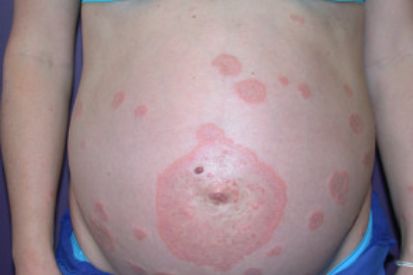
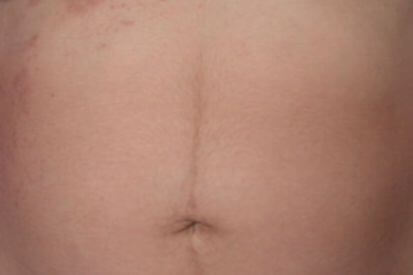
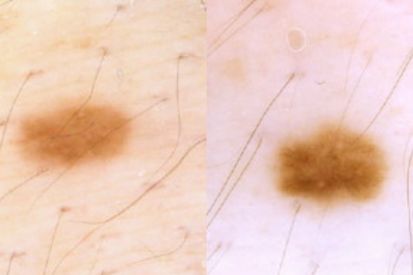

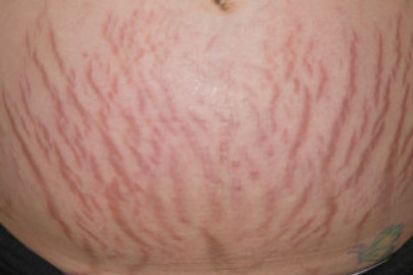
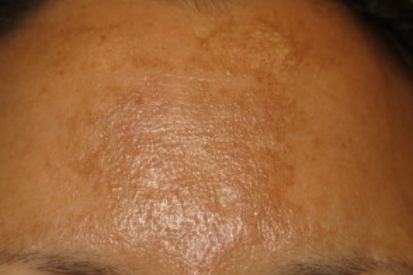
What are the Symptoms of Pregnancy Related Skin Conditions?
- Melasma (Chloasma)
- Hyperpigmentation on face, often referred to as "pregnancy mask."
- Dark patches or brown spots on the skin.
- Pruritic Urticarial Papules and Plaques of Pregnancy (PUPPP)
- Itchy red bumps or hives, usually on the abdomen.
- Spread to other areas of the body.
- Gestational Pemphigoid
- Blistering or urticarial rash, often around the abdomen.
- Itching and burning sensations.
What are the Causes of Pregnancy Related Skin Conditions?
- Hormonal Changes: Fluctuations in hormones, particularly estrogen and progesterone.
- Genetic Predisposition: Family history of skin conditions may increase susceptibility.
- Increased Blood Flow: Enhanced blood circulation during pregnancy can affect skin appearance.
- Immune System Changes: Altered immune responses during pregnancy may contribute.
- Stretching of Skin: Physical stretching of the skin as the abdomen expands.
- Unknown Factors: Some conditions may not have clearly defined causes during pregnancy.
How to Prevent Pregnancy Related Skin Conditions
Recognizing that each pregnancy is unique, with individual factors influencing skin conditions, consulting a dermatologist for personalized guidance and interventions tailored to specific concerns is recommended.
Pregnancy Related Skin Conditions FAQs
Common conditions include melasma (dark patches), stretch marks, acne, and pruritic urticarial papules and plaques of pregnancy (PUPPP), which causes itchy red bumps.
Safe treatments include topical benzoyl peroxide, azelaic acid, and glycolic acid. It is important to avoid medications like retinoids and tetracyclines during pregnancy.
Melasma is caused by hormonal changes that increase melanin production. Sun exposure can also worsen melasma, making sunscreen use essential.
While stretch marks cannot be completely prevented, keeping the skin moisturized with creams or oils and maintaining a healthy weight can help reduce their severity.
PUPPP is a pregnancy-related condition that causes itchy red bumps and is treated with topical steroids, antihistamines, and soothing baths. It usually resolves after delivery.
Most changes, such as melasma and acne, improve or resolve after childbirth. Stretch marks may fade over time but often remain as light scars
How to Treat Pregnancy Related Skin Conditions
- For PUPPP, management includes topical ointments, antihistamines, and oral steroids, often resolving after childbirth.
- Prurigo of Pregnancy is treated with topical ointments, oral medications, antihistamines, or steroids, typically resolving within three months post-delivery.
- Pemphigoid Gestationis, featuring blistering lesions and severe itchiness, may require corticosteroids, antihistamines, or immunosuppressive drugs due to the risk of pre-term delivery and fetal health issues.
Featured Products for Pregnancy Related Skin Conditions
Check your local office for current stock!
Check your local office for current stock!


